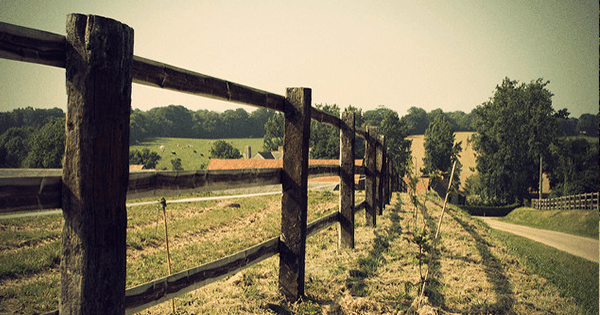A House in the Country
If the dream had come true, I might have lost my mind

When my wife and I first toyed with the idea of moving to France from the apartment we shared in Brooklyn, we seriously considered bypassing Paris and moving directly to the Normandy countryside. A bit like a flatter, grayer, rainier Hudson Valley, Normandy is bucolic, cheap, and readily accessible to the capital. I was 30, not yet a father and not even in possession of a pet, but somehow I could only picture the situation’s upside: space, a garden, a slow-paced life with time to think and write, cold glasses of cidre and rip-roaring fires on winter nights. Luckily, my wife landed a job in Paris and put the kibosh on that. On subsequent off-season trips to her grandmother’s house—a slice of heaven on sunny summer days—I realized how close I’d come to making a terrible miscalculation. The negatives would have been insurmountable at this stage of life, above all the sheer isolation. I realize now that I would have lost my mind without the ability to have dinner with friends on a Tuesday.
Still, from time to time, when I imagine moving back to New York and calculate the amount of money it would take to rent an apartment for three, my mind wanders up to the Catskills. And I wonder if I might now be ready to take a chance on a quiet life. I was again thinking about this a few weeks ago while on a short writing fellowship in rural New Hampshire, when I came across a wonderful book about villas, the original country houses dating back to Roman times. In The Villa: Form and Ideology of Country Houses,” James S. Ackerman writes:
A villa is a building in the country designed for its owner’s enjoyment and relaxation. Though it may also be the center of an agricultural enterprise, the pleasure factor is what essentially distinguishes the villa residence from the farmhouse and the villa estate from the farm. … The basic program of the villa has remained unchanged for more than two thousand years since it was first fixed by the patricians of ancient Rome. This makes the villa unique: other architectural types—the palace, the place of worship, the factory—have changed in form and purpose as the role of the ruler, the character of the liturgy, the nature of manufacture have changed, frequently and often radically. But the villa has remained substantially the same because it fills a need that never alters, a need which, because it is not material but psychological and ideological, is not subject to the influences of evolving societies and technologies. The villa accommodates a fantasy which is impervious to reality. The villa cannot be understood apart from the city; it exists not to fulfill autonomous functions but to provide a counterbalance to urban values and accommodations, and its economic situation is that of a satellite.
Therein lies the catch. Unless you’re a hermit, there are no shortcuts. You can’t skip Go and jump directly to jail. The countryside is only a respite when there is a full town life to return to. At least this is how it feels to me now.
And yet, since the autumn chill has returned, I’ve been thinking more and more about Provence.

